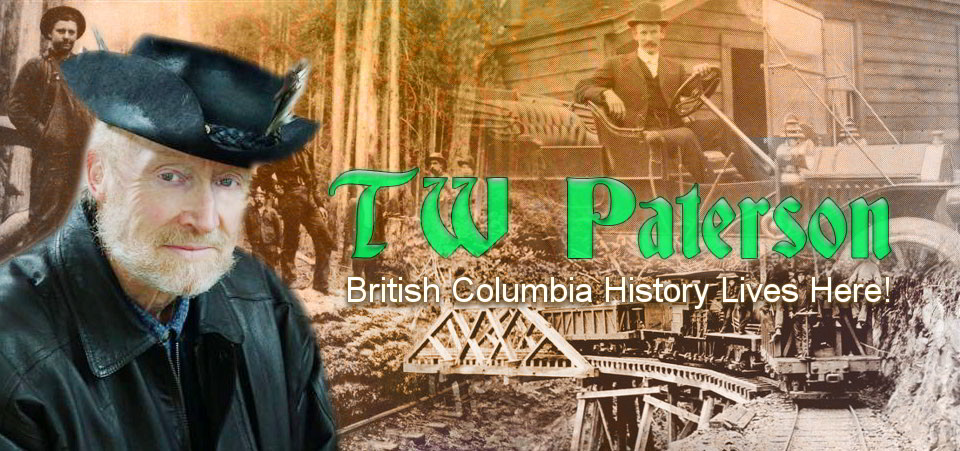Cape Palmerston Named For Irish ‘Firebrand’
Midway between Quatsino Sound and Cape Scott is Cape Palmerston. Mount Palmerston and Palmerston Creek are also to be found in Rupert District, the area encompassing Vancouver Island’s northern tip.
They take their name from Henry John Temple (1784-1865), third Viscount Palmerston “in the peerage of Ireland, G.C.B. and K.G.,” statesman, orator and British prime minister. For much of his public career he served as foreign secretary and played a key role in British policy.
Lacking in personal diplomacy
A diplomat on the international stage, he was known privately as ‘firebrand’ Palmerston for his quick temper which made him numerous enemies abroad and at home. His “self-asserting character, brusqueness of speech, and interference in foreign affairs, were little calculated to soften party animosity in England, while his arbitrary manner won him foes abroad.
“Yet withal he was a national rather than a party leader, and won genuine acceptance of his course from the people. He had great business ability and political tact, was dexterious in parliamentary tactics, and a ready, witty and often able debater.”
This man of conflicting temperament “vigourously prosecuted” the Crimean War against Russia and played a significant role in avoiding war with the United States just a few years later. For well over a century after his death, Ireland remained a trouble spot; in 1828 the Viscount resigned from cabinet and changed political parties over the possibility of Irish civil war. In a speech to the House of Commons the following year, the man known as a firebrand sounded remarkably unwarlike:
He risked censure by speaking out for Ireland
“…In Ireland blood has been shed…leaders have been seized, trials have been had, and punishment has been inflicted… Indeed, almost every page of the history of Ireland is darkened by bloodshed, by seizures, by trials, and by punishments. But what has been the effect of these measures? They have, indeed, been successful in quelling the disturbances of the moment; but they have never gone to their cause, and have only fixed deeper the poisoned barb that rankles in the heart of Ireland.”
In favour of Irish emancipation, as they termed independence from Britain, Lord Palmerston survived national censure on this and other contentious issues. His Irish speech shows him to have been a man of principle and courage.
Queen Victoria was not amused
British monarchs and British statesmen didn’t always see eye-to-eye, usually the result of conflicting interests. Palmerston, as foreign minister, pushed his luck with Queen Victoria to the limit, one royal biographer calling him a “real thorn in the side” of Her Majesty. “He persisted in doing such unconstitutional things as sending drafts to other governments without first submitting them to the Queen for approval. He always apologized and vowed to reform when called on the carpet, but kept right on doing things his own way…”
He continued to do things his own way to the very end. Imagine it: for 63 years he’d sat in 16 parliaments, been a member of every administration but two, and served for 10 years as prime minister. He’d also found time for horses (political cartoonists liked to draw him with a straw between his teeth), a flirtation (or better) with the colourful Lady Jersey, and guns.
“He refused to give up in old age,” wrote Capt. John Walbran in his classic B.C. Coast Names, “kept up his shooting; rode to Harrow and back (Hertfordshire) in the rain when nearly 77 to lay a foundation stone; on his 80th birthday was on horseback nearly all dayn inspecting forts…and less than four months before his death, went down to his constituency (Newton, Isle of Wight) and won a contested election.”
The great Disraeli was no fan
He dismissed him as being “at the best only ginger beer and not champaign [sic], and now an old Pantaloon, very deaf, very blind, and with false teeeth, which fall out of his mouth when speaking, if he did not hesitate and halt so in his talk.”
Palmerston died within two days of his 81st birthday. With no male heir, his peerage died with him; he’s interred in Westminster Abbey.
Capt. George Richards, RN, named Cape Palmerston in 1862. In a roundabout way, Canadians have Lord Palmerston to thank for Esquimalt naval base, he having been in favour of its establishment while serving as foreign minister in the 1840s.

Hello! I’ve recently taken over organizing a meet the local author and I’m wondering if you’d be interested in joining? It’s scheduled for July 14, 2018 in Crofton. We have trad and self published local authors attending. Thank you.
Hi, Amy. Thank you for the invite, today was a joy. It was great to chat with other writers and some of my readers–and to really relax for a change. We must do it again some time!